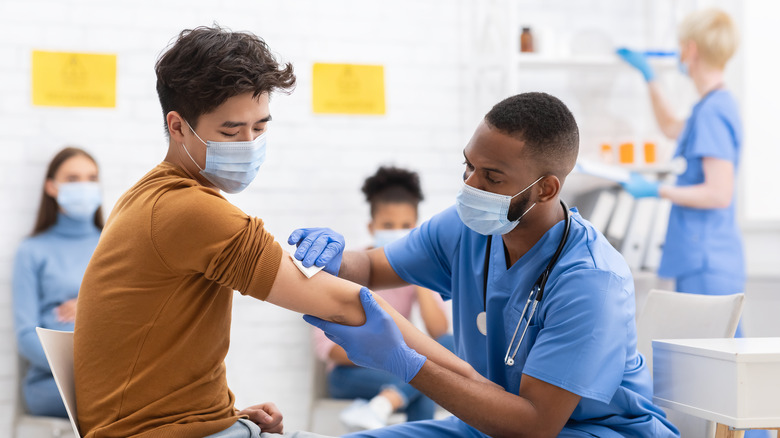Why Do People Vaccinated For COVID-19 Need A Booster Shot?
As the delta variant surges around the country, familiar headlines are making reappearances. Mask mandates are coming back into effect and there is a renewed push for the roughly half of unvaccinated Americans to get vaccinated. Among the vaccinated, however, new questions are coming up. Questions about how much protection vaccines offer months after their final dose, as well as concern about their efficacy against the delta variant. Vaccinated people are asking about booster shots. Why are they needed? And, more importantly, when?
Boosters are fairly common among standard vaccines. The White House has announced a booster rollout to start on September 20, 2021.
Boosters are technically different from a third dose of the vaccine. Third doses are recommended specifically for people with compromised immune systems. Cancer patients, those on immunosuppressant medication, transplant recipients, and those with HIV are part of this group, as well as those with a chronic condition that weakens their immune system. The CDC explains that the vaccine may produce a weaker defense in these people, and a third dose can help increase that defense to protect them against serious infection.
The surgeon general addresses future booster plans
Dr. Vivek Murthy, the United States surgeon general, told reporters on August 18th that plans are in the works to lay down a booster schedule for all vaccinated Americans (via NPR). The plan will focus first on vulnerable populations such as the elderly and frontline medical workers before opening up to the wider vaccinated population.
As Dr. Murthy explained, even standard vaccines become less effective over time and require booster shots. For now, however, current vaccines provably reduce a person's risk of serious infection including hospitalization and death. Unfortunately some Americans go to clinics where there is no record of their vaccinations as a way to receive an additional dose, as reported by Northeastern University. This is not recommended by any medical organization and may interfere with a person's ability to receive a booster during the upcoming rollout


